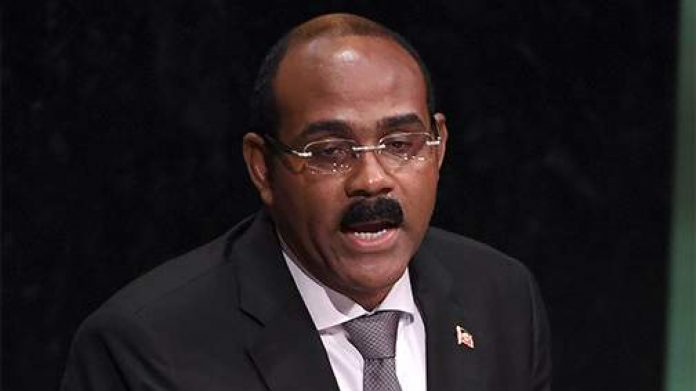
By Orville Williams
“It’s always too few resources being chased by a lot of demands” – that’s just one of the many views held by local economist and business consultant, Petra Williams, ahead of the government’s budget statement today.
Prime Minister Gaston Browne announced a whopping $928.1 million dollar budget in January last year for 2021 and the eyes of the country will certainly be fixed on his administration’s budgetary allocations and plans for the current year, particularly amid increasing political tension with a general election expected to be called.
Ahead of the election – constitutionally due in 2023 – it has been suggested that the government could attempt to appease both public workers and other voters that fall into the ‘everyday people’ category, by addressing some of their concerns in this year’s budget.
Public sector workers will be among those watching keenly, with many – including teachers, nurses and police officers – of the belief that they have long been due salary increases, complaining about poor working conditions and crying out for an injection of additional resources, among other things.
In fact, just this week, the government appealed for patience from public sector workers after some attached to the Fiennes Institute staged a demonstration outside the Treasury Department over outstanding overtime.
Trends like this are likely to continue, because as Williams explained, there will be situations where the government requires services that exceed its prior allocations in the context of an annual budget.
“[Those payments] would likely not have been included in the original amount allocated for that period. But because it’s not allocated for, does not mean that the service doesn’t need to be done, so that carries over into the next budget cycle,” she said.
“For example, provisions were probably made, but then Covid-19 came, so resources had to be spent [to deal with the pandemic]. Or, provisions were made and then something of significance happened with education [for example] and somebody else determined that ‘we’re juggling here, so let’s move things around’.”
Williams also looked at the constant complaint from some members of the public, including political opposition, that everyday people do not feel the positive impact of economic growth.
That sentiment was reignited over the past couple of weeks, after the government – via Information Minister Melford Nicholas – announced that the economy grew by 4.2 percent in 2021, despite the sustained impact of the pandemic and predictions of a contraction by the International Monetary Fund (IMF).
She reminded that, while that growth may not appear immediately visible, it would have taken into account the value of goods and services produced and circulated in the economy for the period.
“For the average man on the street – if I lost my job, if I were not able to service my mortgage, maintain my car [or] maintain the lifestyle that I was accustomed to, I would not feel as if I was a part of the growth.
“However, were my children able to continue with their education? Because somebody had to pay for that. Was I able to continue to access health services as I was accustomed to? Somebody had to pay for that [too].
“If [charitable organisations] were able to distribute more food packages, for example, if [they] were able to distribute more cash vouchers, somebody had to give that to [them] in order for [them] to give that out.
“That counts towards our economic circulation of goods, services and money. So, by extension, that counts towards economic growth,” she illustrated.
In last year’s budget, the Ministry of Education received the largest allocation with just over $143 million, while wages and salaries took up the bulk of recurrent expenditure, with $402 million.
Williams disclosed that, along with the allocations for 2022, she is looking forward to finding out what the main growth areas are, the new policies and programmes that are expected to drive the economy, and how the entertainment sector will fare over the course of this year – calling the latter a “key component of our economy”.
She noted too that creating a national budget is no easy task, saying, “It’s a continuous process of moving things around in order to keep the machine of government and paying people moving, turning over and over.”
She added, “That would likely have been complicated by the downturn in revenue that we suffered for many months during the Covid lockdown.”
